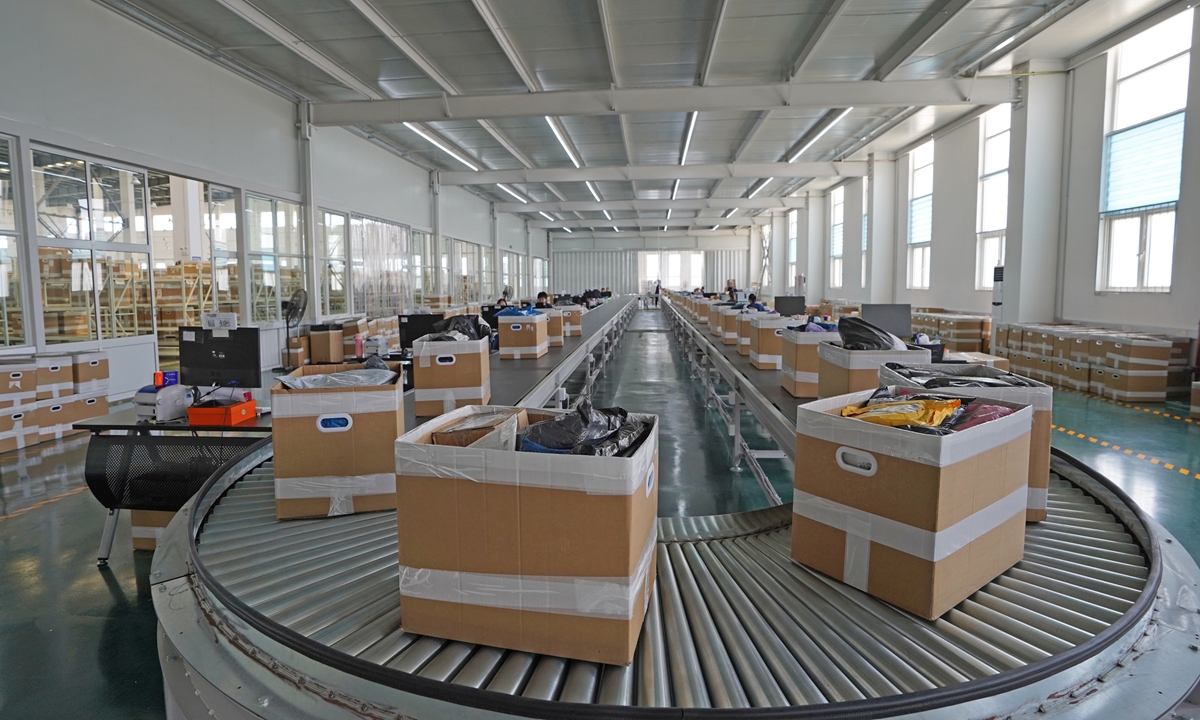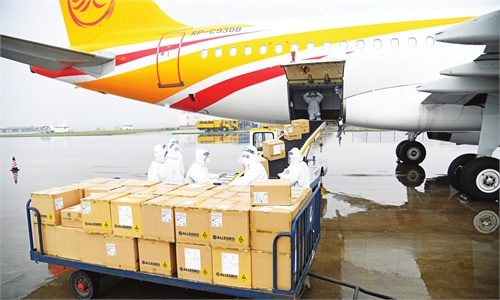China to set up pilot zones for cross-border e-commerce in 33 places, including less developed areas

Cross-border goods are sorted at a facility in Rongcheng, East China’s Shandong Province in June 2020. Photo: cnsphoto
China's State Council on Thursday approved the establishment of comprehensive pilot zones for cross-border e-commerce in 33 cities and regions across the country, in a bid to leverage the positive role of cross-border e-commerce in facilitating the transformation, upgrading and digital development of traditional industries and to optimize China's foreign trade.
The country set up its first comprehensive pilot zone for cross-border e-commerce in 2015, and has since expanded the number of zones several times. The number of comprehensive pilot zones for cross-border e-commerce has reached more than 100 so far.
The State Council, China's cabinet, said on Thursday that it will focus on exploring and innovating technical standards, business processes, regulatory models and information construction related to cross-border business-to-business e-commerce, according to a document posted on the State Council's website on Thursday.
All levels of government should support enterprises in building and sharing overseas warehouses, said the State Council.
To effectively promote the exemplary and leading role of comprehensive pilot zones, the State Council said it will further improve the statistical system of cross-border e-commerce. Support policies such as exemption for value-added tax and consumption tax on cross-border e-commerce retail export goods in the pilot zones shall be implemented.
The newly added 33 pilot zones for cross-border e-commerce include Ili Kazak Autonomous Prefecture in Northwest China's Xinjiang, Lhasa in Southwest China's Xizang Autonomous Region, Dali Bai Autonomous Prefecture in Southwest China's Yunnan Province, Tongren in Southwest China's Guizhou Province, Liuzhou in South China's Guangxi Zhuang Autonomous Region, Baotou in North China's Inner Mongolia Autonomous Region, and various third-tier and fourth-tier cities.
The approved comprehensive pilot zones have been extended to the central and western regions where e-commerce is less developed, which truly represents the comprehensive development of China's cross-border e-commerce, Zhu Qiucheng, CEO of Ningbo New Oriental Electric Industrial Development, told the Global Times on Thursday.
"Setting up comprehensive pilot zones in remote cities will play a more positive role in promoting high-level development of cross-border e-commerce and opening-up to the outside world, and further promote the local market economy," said Zhu.
According to Zhu, in 2022, the world economy as a whole went into reverse, but cross-border e-commerce is still a new form of foreign trade with a fast growth rate and strong potential, and it is still in a period of rapid development.
The import and export scale of China's cross-border e-commerce in 2021 was about 1.92 trillion yuan ($268.6 billion), with a year-on-year growth rate of 18.6 percent, accounting for 4.9 percent of China's total foreign trade, according to official data.
The number of overseas warehouses has exceeded 2,000, with a total area of over 16 million square meters, and the business scope covers the whole world.
The Ministry of Commerce (MOFCOM) recently released a report saying that in recent years, comprehensive pilot zones for cross-border e-commerce have learned from the experience of advanced regions and achieved positive results.
The pilot zones in inland regions are exploring their own development path in combination with their own industry and location advantages, while the pilot zones in the eastern coastal regions are focusing on exploring new models and new business forms, gradually forming linkages between land and sea and between east and west, said MOFCOM.
Global Times


